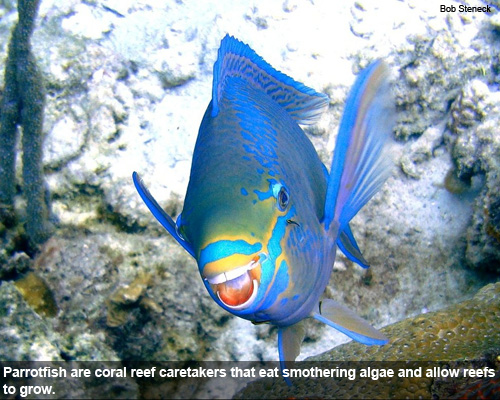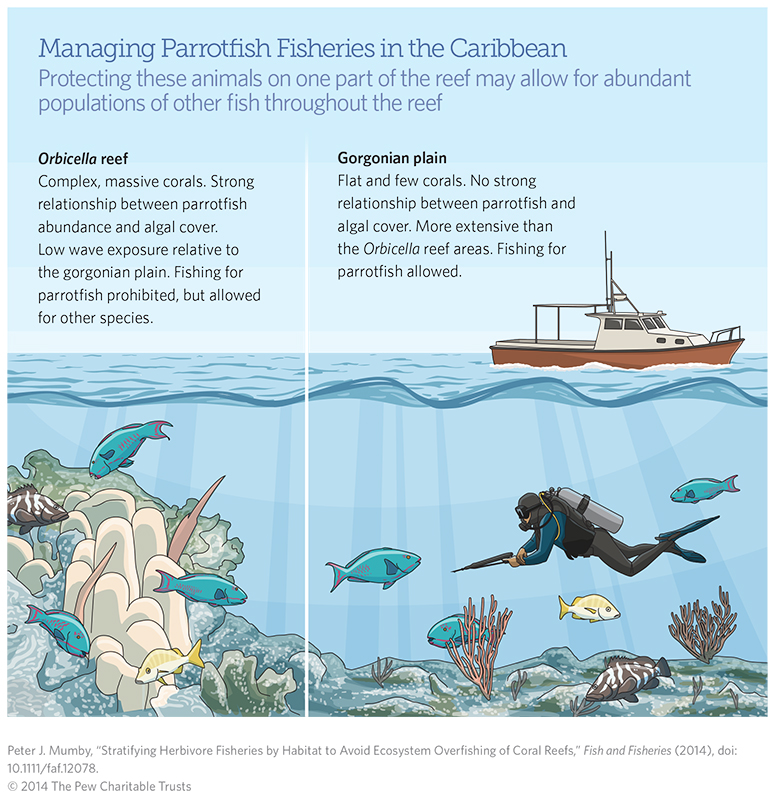Coral Caretakers Need Help Too
If you have ever enjoyed a stroll on a Caribbean beach or snorkeled over coral reefs, you can thank parrotfish.
These colorful creatures produce much of the sand on the Caribbean's idyllic shores and keep the brilliant reefs healthy. In an intricate underwater partnership, parrotfish feed on algae that would otherwise smother reefs. They also clear the way for corals to re-grow by chewing off tiny bits of coral skeleton, which are then excreted as sand. One parrotfish can create up to 200 pounds of sand each year.
Yet these important reef dwellers—critical to the survival of endangered corals—are depleted from years of overfishing, and not enough is being done to protect them. Now, a groundbreaking new study in the March issue of the journal Fish and Fisheries offers a potential solution.
The study, by parrotfish expert Peter Mumby, a Pew marine fellow and a professor at the University of Queensland in Australia, suggests that not all areas of coral reefs need parrotfish to clean off algae. Parrotfish are key on more structurally complex reef areas that provide good habitat for diverse marine life. But in flatter areas of the reefs, algae does little harm and parrotfish cleaning isn't as important.
 Prohibiting fishing for parrotfish on the complex reef areas but allowing them to be caught within sustainable limits in the flatter regions could dramatically help both fish and corals, according to Mumby's study. Parrotfish would be left alone to better fulfill their roles as reef cleaners. And healthy corals attract many species of fish because they provide shelter and also harbor prey.
Prohibiting fishing for parrotfish on the complex reef areas but allowing them to be caught within sustainable limits in the flatter regions could dramatically help both fish and corals, according to Mumby's study. Parrotfish would be left alone to better fulfill their roles as reef cleaners. And healthy corals attract many species of fish because they provide shelter and also harbor prey.
Considering a species' unique role in an ecosystem when setting fishing rules is part of what's known as ecosystem-based fisheries management.
Want to know more about parrotfish? Mumby explains here: http://youtu.be/2aAfIlRjgk8
Holly Binns directs U.S. ocean conservation efforts for The Pew Charitable Trusts in the Southeast and U.S. Caribbean.











